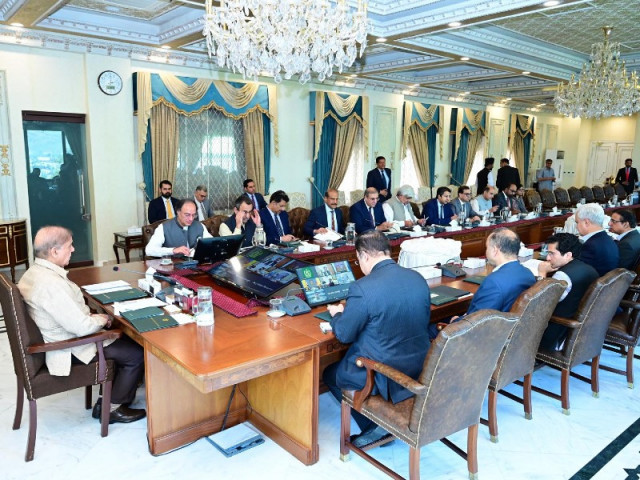PM directs authorities to minimise load-shedding as country sizzles
Shehbaz says the government in no way would tolerate over-billing

As the country sweltered under intense heat with mercury crossing the 50-degree mark in many parts of the country, particularly in Sindh, Prime Minister Shehbaz Sharif on Tuesday directed the authorities concerned to minimise the ongoing load-shedding in different areas through better load management, considering the public relief in sizzling weather.
The prime minister, chairing a meeting on load management and power theft, reiterated that the government would deal strictly with the power thieves and that the ongoing mission against them would be taken to the logical end.
Vowing to hold a monthly review of the power theft situation, he asked the provincial governments, law enforcement agencies and other departments to extend their support in the anti-power theft drive in the national interest and for the country’s progress.
The prime minister told the participants of the meeting that the government in no way would tolerate the over-billing. He directed the acceleration of the privatisation process of the power distribution companies by engaging the experts and formulating a strategy to solarise the tube wells in Balochistan.
Read more: Sea breeze brings respite to sweltering Karachi
During the briefing on load management and power theft issue, it was told that under a joint strategy formulated following a conversation between the Khyber-Pakhtunkhwa chief minister and federal minister for power, it had been agreed to reduce load-shedding and line losses and ensure recovery of dues from defaulters in the province.
It was told that areas with more power theft and line losses and low recovery ratio were being subjected to load-shedding and that the upgradation of the south-north power transmission line would help improve the system.
The meeting participants were told that task forces were being formed at provincial and divisional levels to eliminate the power theft which would undergo a weekly performance review.
The meeting was attended by federal ministers Ahad Khan Cheema, Muhammad Aurangzeb, Dr Musaddik Malik and Awais Ahmed Leghari, Minister of State Ali Pervaiz Malik, Coordinator to PM Rana Ehsan Afzal, WAPDA chairman and relevant senior officers. The provincial chief secretaries and inspector generals of police joined the meeting via video link.
Shortfall reaches 5,319 MW
As per sources, the demand for electricity in the country stands at approximately 25,000 megawatts, while the production is at 19,681 megawatts, resulting in a shortfall of 5,319 megawatts.
Read: Mercury soars to 39.5°C as PMD warns of ‘partial’ heatwave in Karachi
They said that hydropower sources were generating 5,600 megawatts of electricity, whereas government thermal power plants were producing 890 megawatts. Additionally, private sector electricity houses contribute 8,980 megawatts, and wind power plants were generating 780 megawatts.
They further said that solar power plants contribute 198 megawatts, biomass contributes 133 megawatts, and nuclear power plants contribute 3,100 megawatts to the national grid.
Protests
Citizens across the nation are distressed due to both scheduled and unscheduled load-shedding, with power outages exacerbating the situation during the extreme heat. Protests against load-shedding have erupted in several cities, including Karachi.
The business community reports that frequent power cuts have severely impacted their operations, while students struggle to study in the sweltering heat, and homemakers are facing mental distress due to prolonged outages.
In many parts of the country, according to Express News, load-shedding lasts up to 18 hours, making it difficult for citizens to rest even at night.
A day earlier, Karachi residents took to the streets in various areas to protest against the power outages. They blocked roads by burning tyres, leading to traffic jams and further inconvenience. During the protests, affected citizens closed both tracks of the road and chanted slogans against K-Electric.
Meanwhile, in Peshawar, citizens protested against both scheduled and unscheduled load-shedding by blocking the motorway from Peshawar M-9 to Charsadda. Protesters stated that the prolonged outages, lasting from 12 to 16 hours, have disrupted daily life.
With additional input from APP



















COMMENTS
Comments are moderated and generally will be posted if they are on-topic and not abusive.
For more information, please see our Comments FAQ